Dr. Scott Giacomucci is a Board-Certified Trainer, Educator, & Practitioner of Sociometry, Psychodrama, and Group Psychotherapy (TEP), offering trauma-informed Psychodrama Workshops in the Philadelphia area.
Explore Our Psychodrama Workshops
(click on arrows above to see other upcoming events)
or visit our Event Calendar here
Awesome
Unparalleled
Motivating


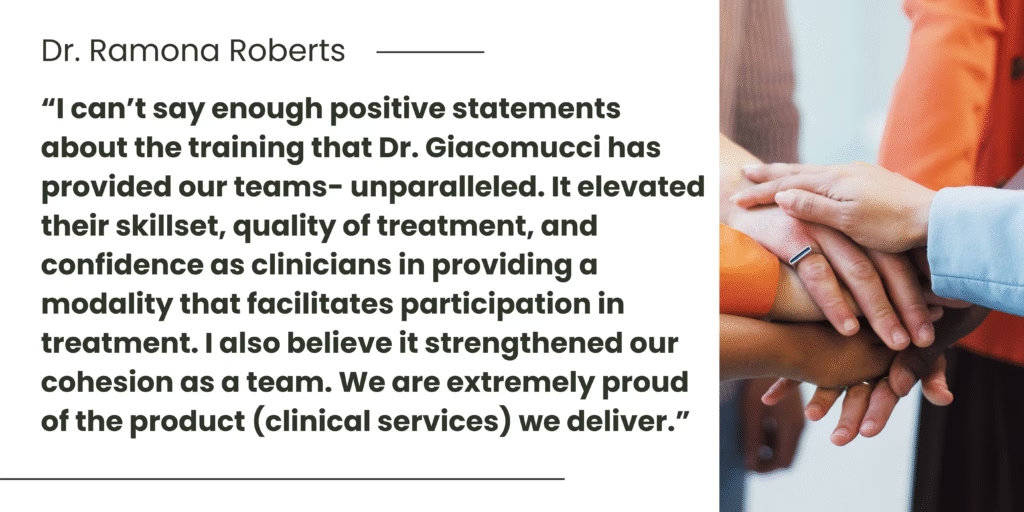
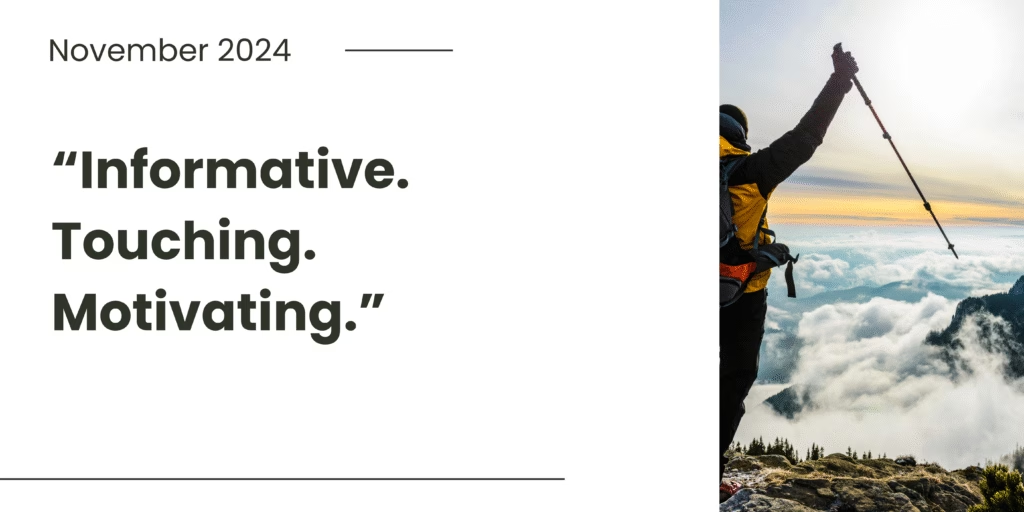
Why Attend a Psychodrama Training?
Unlike many of our clinical trainings, Psychodrama education is entirely experiential. There are rarely slides, very little lecture, and a lot of action. While incredibly useful in treating trauma and other mental health issues, Psychodrama techniques can also extend beyond clinical psychotherapy, and can be used by educators, coaches, religious leaders, lawyers, and organizational leaders.
What is Psychodrama?
Psychodrama is an action-based, group therapy approach that involves role-playing techniques. Rather than sitting and talking about our traumatic experiences, Psychodrama allows us to externalize and put our clients’ treatment goals into action. Psychodrama is one of the oldest therapy models, was popularized in the 60s and 70s, and is starting to become highly sought after again in the United States.
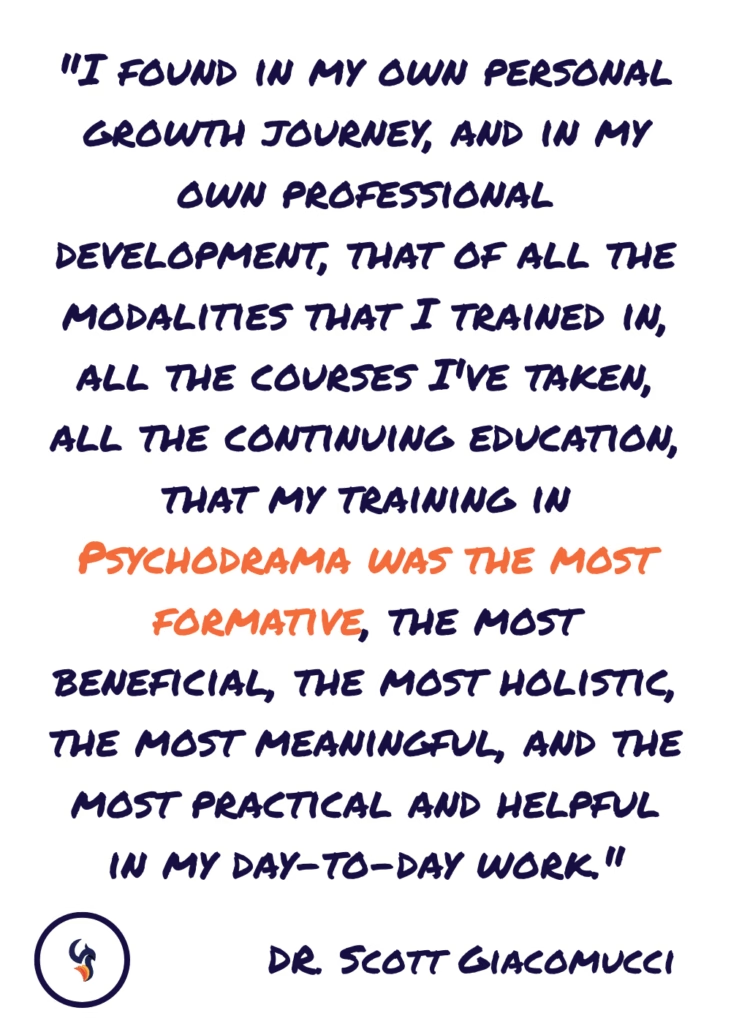
Jacob Moreno, who developed Psychodrama in 1921, used a triadic system – sociometry, psychodrama, and group psychotherapy – each of which parts can be effective in addressing complex trauma. Many traumatic memories revolved around relational trauma – harm caused by someone with whom we have a significant relationship with (parents, partners, children, etc.) and Psychodrama provides complex trauma survivors with significantly opportunities to renegotiate relational trauma and offer corrective experiences.
Psychodrama Training Benefits
Psychodrama is primary a group approach, though can be modified for individual settings. Many therapists are expected to facilitate groups but receive little training on how to effectively run groups in graduate programs. Psychodrama training can help fill in those gaps, in skills and understanding on how to facilitate groups effectively and safely. With Psychodrama Training you’ll feel much more confident, competent, and creative in facilitating groups of any kind, whether therapy groups, support groups, trainings, or educational workshops.
Psychodrama is unique in that it’s an action method, rather than sitting and talking. Much like the modality itself, Psychodrama Training is action based. Rather than lectures, slides, and more traditional methods of learning, psychodrama training is taught and learned in action. Psychodrama skills and competencies allow us as therapists and professionals to provide more engaging services.
Psychodrama positions group members as therapeutic agents for each other. This takes some of the demand off of the therapist. While we provide the structure, containment, and ensure safety, the group members are the ones providing the healing for each other. This can help decrease burnout and vicarious trauma of the therapist.
Many Psychodrama theories challenge the medical model, challenge individualism and provide more humanistic and person-centered ways of thinking about our clients. Psychodrama allows us to conceptualize mental health problems, through a non-pathologizing lens, especially thinking in terms of role-theory and spontaneity.
Psychodrama training is self-care because we are experiencing the therapeutic benefits of Psychodrama while we are learning it. While Psychodrama Workshops have to prioritize the training and education aspects, we learn Psychodrama by doing it; we learn it from the inside out. For many trainees, their psychodrama training group is a sanctuary, place of belonging, and one of the most important communities in their life.
Many Psychodrama trainees, Psychodramatists, and clients highlight how fun and playful Psychodrama can be. In a recent research study Dr. Scott Giacomucci was completing, one of the qualitative themes that emerged was that the clients were shocked that they could have fun while doing trauma therapy. Many new Psychodrama trainees are shocked that they can have fun the entire time we are learning Psychodrama.
Psychodrama training is a big commitment. While you can start to use Psychodrama techniques after only a couple trainings, to become a Psychodramatist, it requires a longer-term commitment. The entry level credential requires 300 training hours. There’s only a couple hundred certified Psychodramatists in the United States right now, which means there’s only a handful of certified Psychodramatist in each state, and many are close to retirement. Getting credentialed allows you to stand out and offer something different that others in the field aren’t offering.
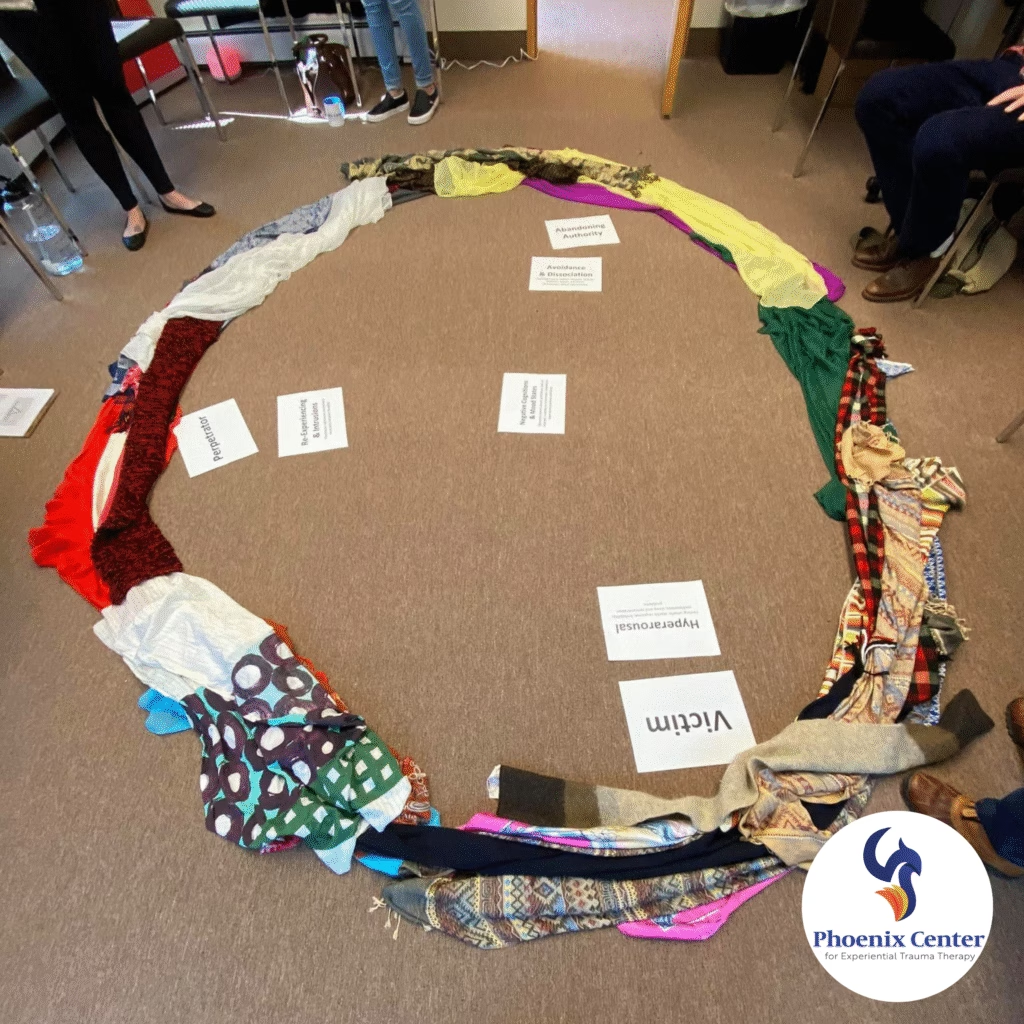
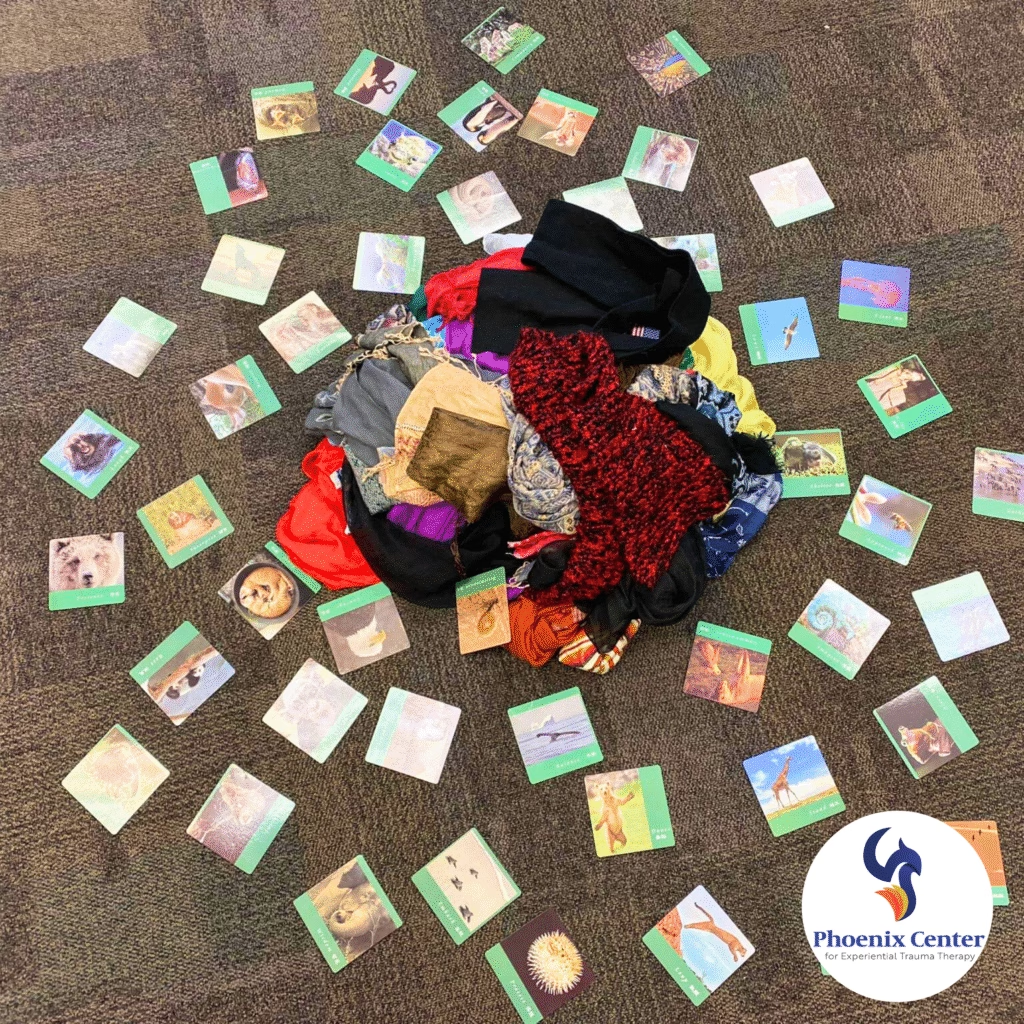
Bring Customized Training to Your Team or Organization
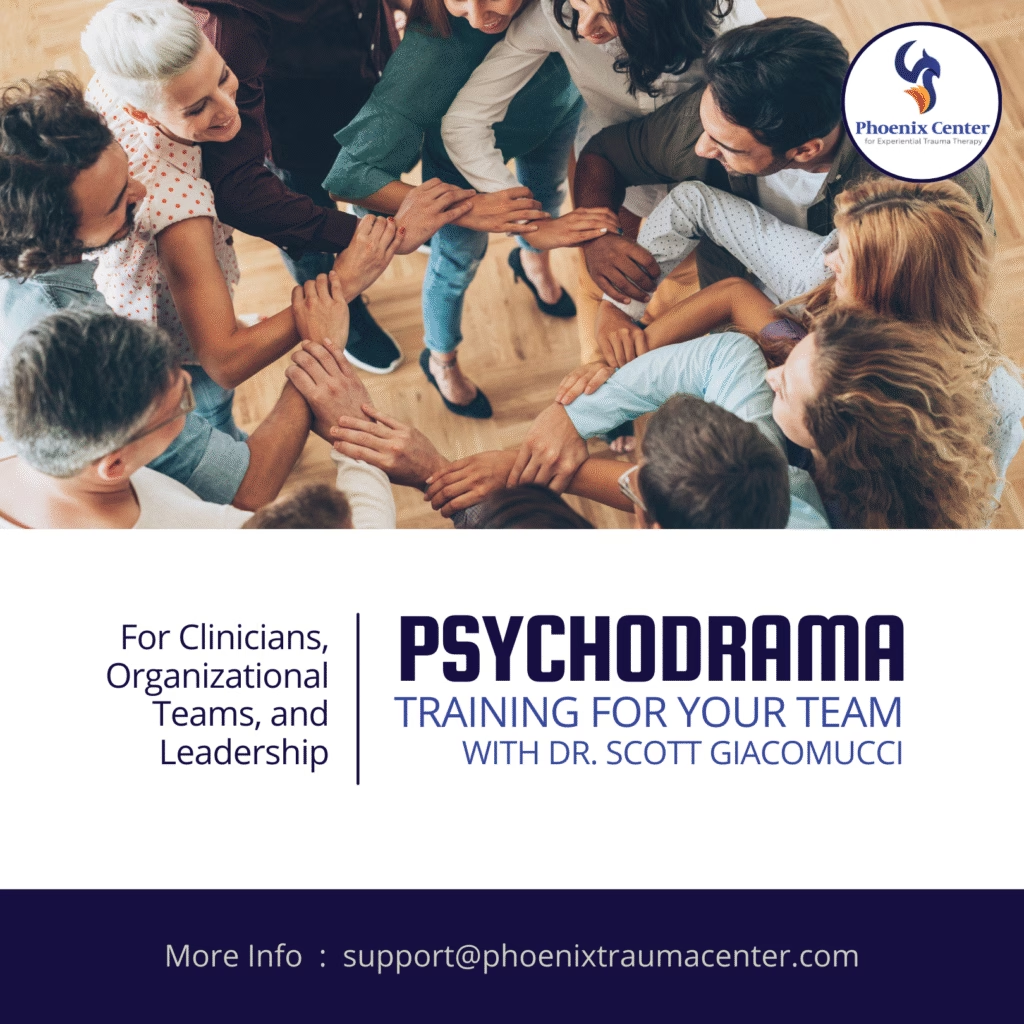
Dr. Scott Giacomucci regularly provides training in-services for clinical teams at various programs and treatment centers nationally, and internationally. These trainings are uniquely tailored to the needs of your team, while primarily focusing on enhancing group facilitation skills, learning experiential therapy techniques, and incorporating trauma-informed and/or trauma-focused approaches into your program or leadership.
2026 Psychodrama Training Program
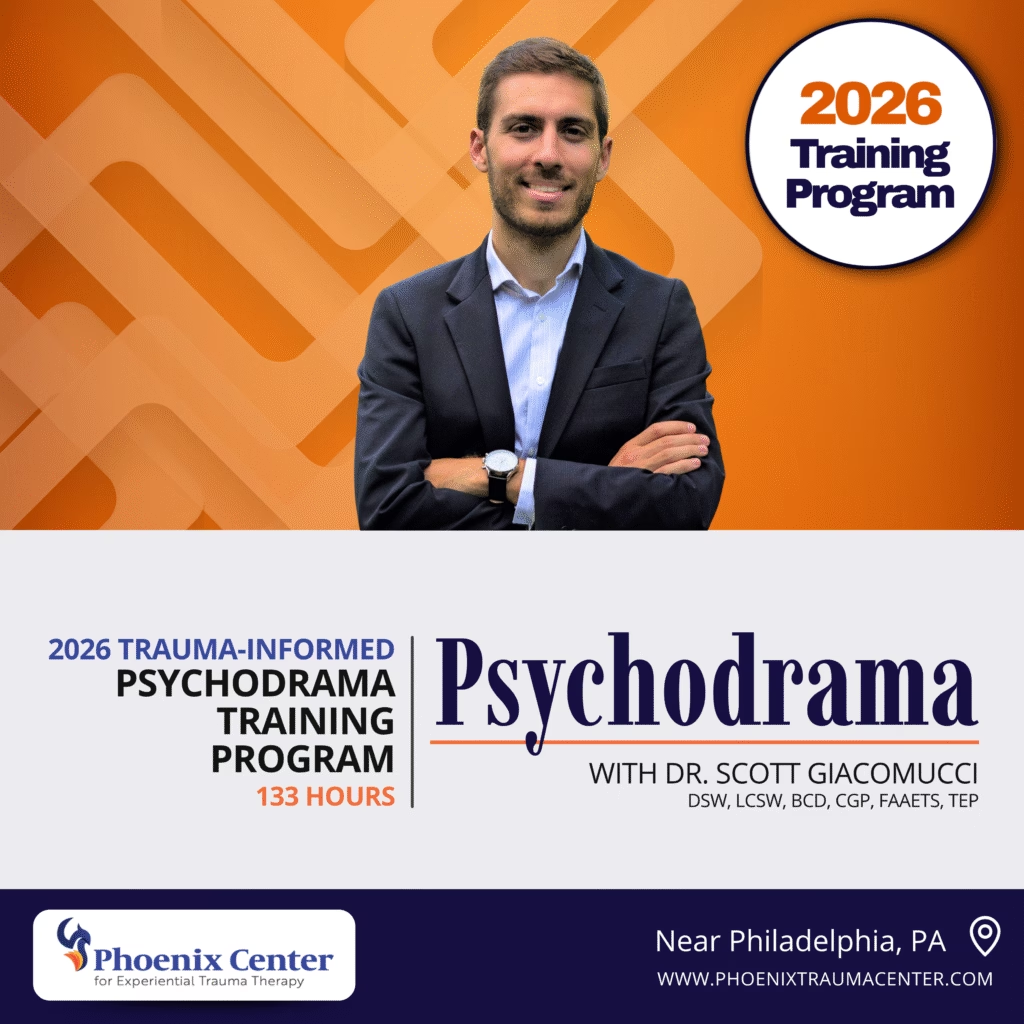
Join us for an intensive, year-long journey into the heart of trauma-informed psychodrama. This comprehensive training program offers over 130 hours of education and experiential learning for professionals seeking to advance their skills in psychodrama, sociometry, and group therapy.
Psychodrama Publications
Scott’s work has been internationally recognized, and he is the recipient of various awards. He has published various articles on using experiential methods (especially sociometry, psychodrama, and group work) in clinical, educational, community, and organizational settings. Scott has taught trauma-focused psychodrama courses as an adjunct professor and research associate at Bryn Mawr College Graduate School of Social Work & Social Research, University of Pennsylvania’s Doctorate in Clinical Social Work Program, as well as Villanova University’s graduate counseling program.
Throughout his career, he has published several books that have been used in many graduate courses internationally. He is Co-Chief-Editor of the Journal of Psychodrama, Sociometry, and Group Psychotherapy. He is an active member of the International Association of Group Psychotherapy & Group Processes (IAGP) Social and Collective Trauma Committee and Psychodrama Division.
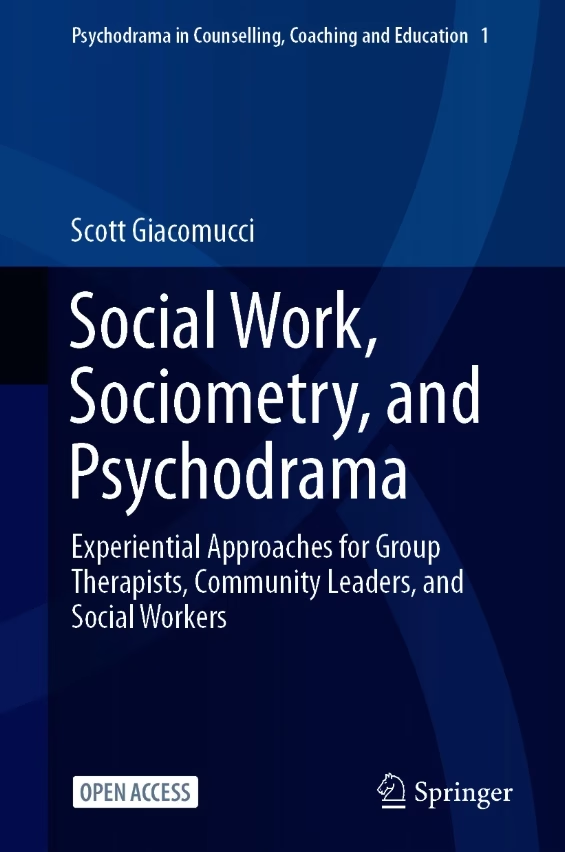
Social Work, Sociometry, and Psychodrama
Experiential Approaches for Group Therapists, Community Leaders, and Social Workers
Trauma-Informed Principles in Group Therapy, Psychodrama, and Organizations
Action Methods for Leadership
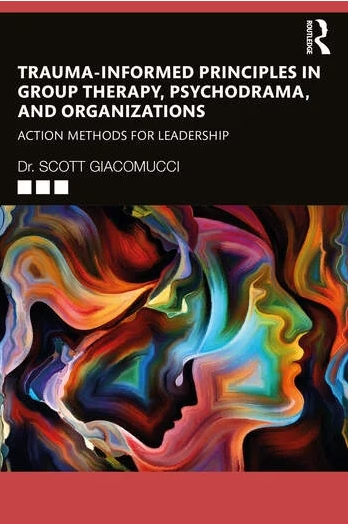
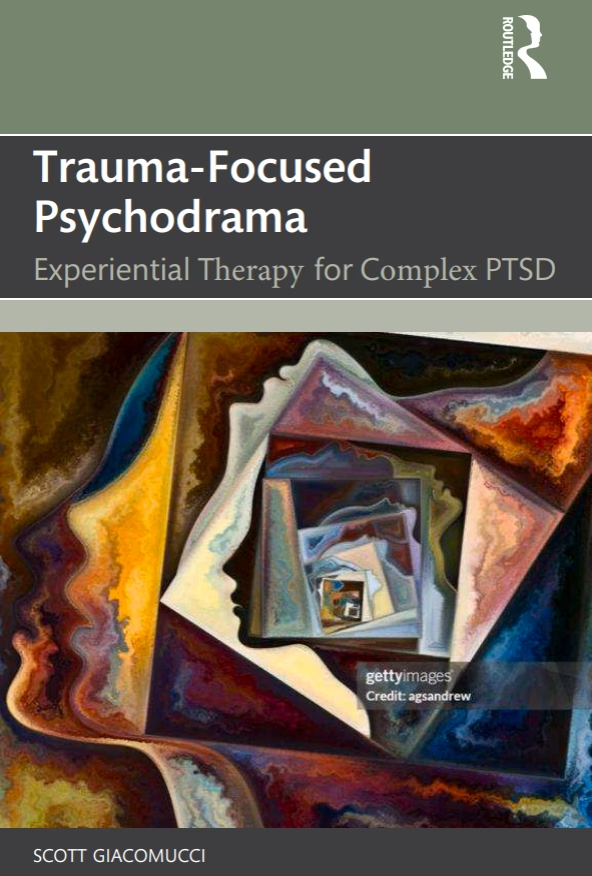
COMING SOON
Trauma-Focused Psychodrama
Experiential Therapy for Complex PTSD










